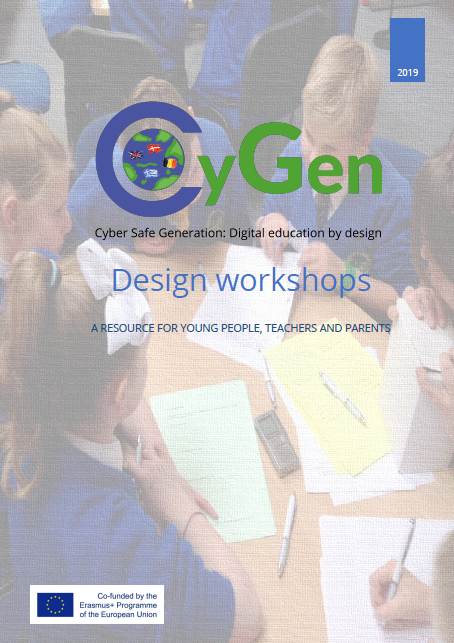 This intellectual output (I03) were workshops with users from the participating schools. Each workshop will produce user inputs to be analysed and integrated into the design of IO4, adding further depth to the scoping and needs analysis described in IO1. The design workshops will take place with groups of children and teachers from the participating schools and will include two workshops in each school. There were 8 workshops involving up to 30 children and their teachers in each school. The methodological consistency and to increase the output from the workshops, workshops will be led by partner 4 and partner 1 who have the appropriate expertise.
This intellectual output (I03) were workshops with users from the participating schools. Each workshop will produce user inputs to be analysed and integrated into the design of IO4, adding further depth to the scoping and needs analysis described in IO1. The design workshops will take place with groups of children and teachers from the participating schools and will include two workshops in each school. There were 8 workshops involving up to 30 children and their teachers in each school. The methodological consistency and to increase the output from the workshops, workshops will be led by partner 4 and partner 1 who have the appropriate expertise.
Each workshop will created input for the design of scenarios for IO4, as well as for uncovering critical issues to be pursued in further iterations of IO1. For the purpose of involving children and young people in co-design, techniques from the Participatory Design-tradition (PD) was used. The design methodology and kit (see IO2) allowed participants to contribute to the design process without prior technological skills or design knowledge. Using a methodological approach informed by Design Based Research (DBR), teachers engaged in designing and testing teaching and learning situations constructed around the material. At the end of each workshop, a design document will be drafted which will feed into the design work in IO4.
Design workshops: Report (EN)
This intellectual output (I03) were workshops with users from the participating schools. Each workshop will produce user inputs to be analysed and integrated into the design of IO4, adding further depth to the scoping and needs analysis described in IO1. The design workshops will take place with groups of children and teachers from the participating schools and will include two workshops in each school. There were 8 workshops involving up to 30 children and their teachers in each school.
Design workshops: Executive summary (EN)
The Design Cycle was over 4 steps. Data workshop – Analysing data – Design workshop – Pupils-developers team and finally the creating and testing of the online tool. The participating pupils were involved in the design process as co-designers on both pedagogical approaches in relation to the design of the online tool, and regarding the content to the online education package (questions, reflections, tool kits).
Εργαστήρια Σχεδιασμού: Συνοπτική Έκθεση (GRE)
The Design Cycle was over 4 steps. Data workshop – Analysing data – Design workshop – Pupils-developers team and finally the creating and testing of the online tool. The participating pupils were involved in the design process as co-designers on both pedagogical approaches in relation to the design of the online tool, and regarding the content to the online education package (questions, reflections, tool kits).
Ontwerpworkshops: Samenvatting (NL)
The Design Cycle was over 4 steps. Data workshop – Analysing data – Design workshop – Pupils-developers team and finally the creating and testing of the online tool. The participating pupils were involved in the design process as co-designers on both pedagogical approaches in relation to the design of the online tool, and regarding the content to the online education package (questions, reflections, tool kits).
Design workshops: Resumé (DA)
The Design Cycle was over 4 steps. Data workshop – Analysing data – Design workshop – Pupils-developers team and finally the creating and testing of the online tool. The participating pupils were involved in the design process as co-designers on both pedagogical approaches in relation to the design of the online tool, and regarding the content to the online education package (questions, reflections, tool kits).

